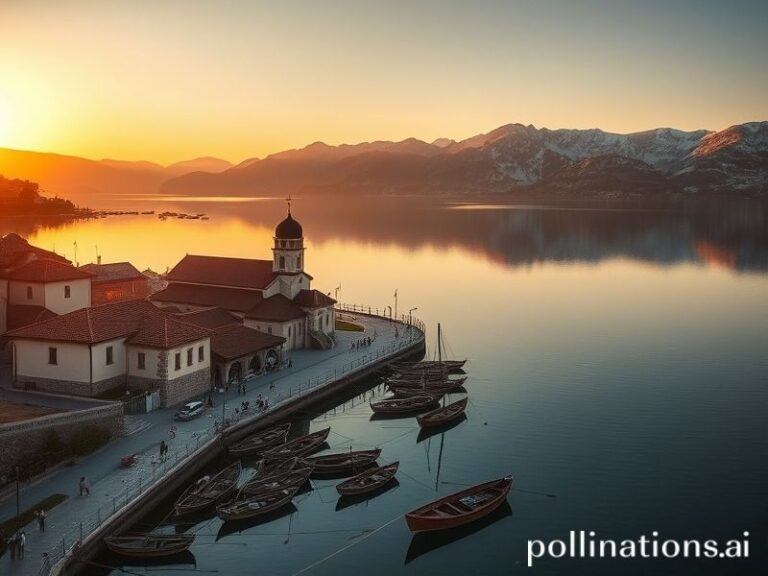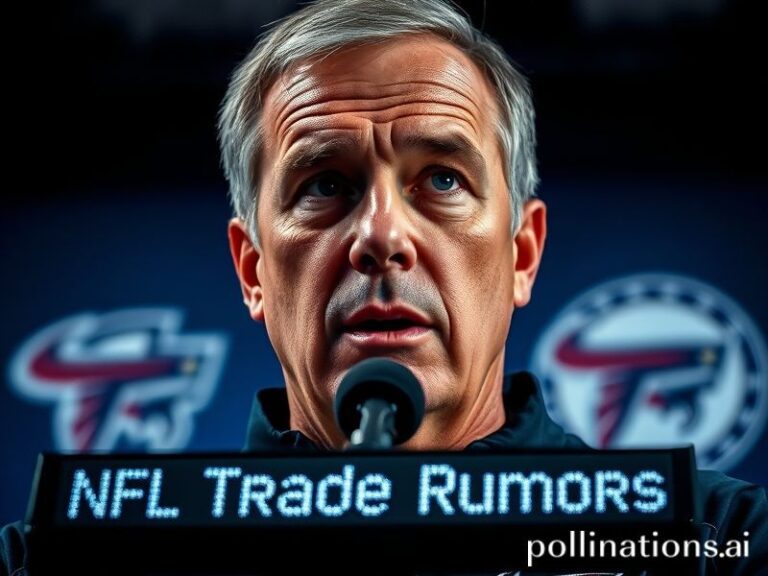Murdoch Steps Down: The Emperor Emeritus of Global Outrage Hands the Remote to Junior
Rupert Murdoch, 93, has announced—again, with the weary inevitability of a Bond villain returning for one last sequel—that he will finally loosen his grip on the Death Star of global media. Or, more accurately, he’ll shuffle sideways into the honorary title of “Chairman Emeritus” of Fox and News Corp while his son Lachlan assumes the joystick. For the rest of the planet, this is rather like learning the dragon has decided to let its slightly smaller, equally scaly offspring guard the hoard. Same smoke, marginally different nostrils.
Across six decades, Murdoch has treated borders the way other moguls treat buffet lines: with greedy, elastic impunity. From Adelaide to London, Mumbai to New York, local newsrooms learned to call the tune he hummed, whether it was anti-EU jingles for Britain or pro-Brexit greatest hits for the Home Counties. The Sun may have been printed in Wapping, but its psychic footprint extended to every British supermarket queue, shaping what grandmothers in Skegness thought of the Euro, and, by extension, what prime ministers thought of their own job security. When Tony Blair flew to Hayman Island in 1995 to genuflect, it wasn’t a holiday; it was the audition of a lifetime, and the casting director wore a permanent squint.
Meanwhile, in the United States, Fox News transformed cable television into a 24-hour outrage subscription service. Abroad, the channel is often viewed as an anthropological curiosity—an electronic zoo where the animals run the gift shop. Yet its algorithms of anger were exported with astonishing efficiency. Try finding a populist movement from Budapest to Brasília that doesn’t now mimic the lighting, the tempo, the sneer. Even Vladimir Putin’s media strategists reportedly binge Fox promos for tips on pacing; imitation is the sincerest form of geopolitical flattery.
In India, Murdoch’s Star TV once beamed Baywatch into living rooms still debating whether satellite dishes were morally hygienic. Today, Star controls the broadcast rights to cricket, an influence that makes the British East India Company look like a lemonade stand. When one corporation can decide whether a billion people watch Virat Kohli bat or not, you begin to understand why the phrase “soft power” was invented by someone who hadn’t met Rupert.
Australia, the mogul’s birthplace, has long served as the family’s sentimental tax shelter. Every election cycle, the Sydney tabloids perform ritual character assassinations with the precision of a Swiss chronograph, ensuring that whichever party wins, the Murdoch tax regime remains untouched. Australian voters, sunburned and stubborn, like to claim they’re immune to foreign influence. They aren’t; they’ve simply been marinated in it so long they can’t taste the brine.
The global significance of this transition, then, isn’t that power is evaporating; it’s that power is consolidating. Lachlan—who once tried to buy a Hollywood studio with the same casual enthusiasm one might reserve for a new espresso machine—has shown no appetite for ideological moderation. If anything, he has the sleek certainty of a man who believes disruption is just another word for Tuesday. Expect the same nationalist jingles, now remastered in Dolby Atmos.
What dies with Murdoch Sr.’s daily reign is not an empire but the last pretense that media empires are accidental. The satellites, the tabloids, the streaming apps—they have always been political weapons wrapped in sports scores and celebrity cellulite. The rest of us merely flick the remote and pretend we’re choosing the channel.
So, as Rupert ascends to his ceremonial perch, let us raise a glass of whatever multinational beverage his advertisers prefer this quarter. To the man who proved that democracy can be monetized by the segment break, that national identity is negotiable at the right CPM rate, and that truth—like everything else—travels first class when someone else is paying for the ticket. May he enjoy his emeritus years in the same way the rest of us enjoy a mild climate catastrophe: with the quiet, private knowledge that we helped build it, and it’s far too late to switch the thermostat now.







